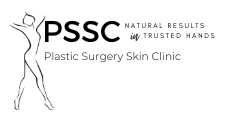Rosacea flare-ups can cause embarrassment and stress at the most inopportune times. If you’ve suffered from rosacea, you know exactly what we’re talking about. For many, rosacea simply feels like a force of nature – something like the weather. It’s to be suffered, and there’s little that can be done. However, by understanding the risk factors and treatment options of rosacea, you can take back control of your skin.
What is rosacea?
You might suffer from periodic flare-ups of rosacea and not even know it, thinking that it is some other form of acne, or simply presuming that you have “bad skin”. But rosacea is a very real and very specific condition, with very specific symptoms. You can expect at least a few of the following symptoms:
Dry Eyes: Beyond affecting the skin, many rosacea sufferers also suffer from “Ocular Rosacea”, where the eyes become dry and swollen.
Heat: The skin of a rosacea sufferer often will feel “hot” and tender to them, with a distinct burning sensation.
Pimples: Swollen bumps that resemble acne, sometimes filled with pus, tend to appear across the face in rosacea sufferers. In more extreme cases, they can also appear on the back and chest.
Redness: “Rosacea” comes from a Latin term meaning “Rosy-colored”. The redness in the face is one of the most iconic and recognizable symptoms.
Swelling: Rosacea is often accompanied by swelling of certain parts of the face, most notably the nose. Skin on the nose can thicken over time, further increasing the apparent size.
Veins: Rosacea can make the veins stand out notably across the nose and cheeks, the so-called “spider veins”. These can be extremely noticeable for those with paler skin.
What causes rosacea?
In its simplest terms, rosacea is caused by blood vessel ingrowth near to the surface of the skin. Why exactly this happens is still a cause for debate. For such a common skin condition, it may be surprising to learn that there is no conclusive cause for the condition. As far as any medical experts can tell, rosacea seems to be connected both to genetic predisposition and immune responses, as well as certain risk factors. Rosacea also tends to be a condition that comes and goes, with certain triggers causing flare-ups.
While there’s no surefire way to determine if you’re going to develop rosacea, there are a few risk factors that have been identified. If you check off most of this list, you might be at risk from developing rosacea later in your life.
- Have a family history of rosacea
- Are over the age of 30
- Have pale skin that easily sunburns
- Have skin prone to acne
- Have a history of smoking
How do I get rid of rosacea?
Until we have a better understanding of rosacea’s causes, it will be difficult to prevent it outright. That doesn’t mean that it can’t be reduced or eliminated, however. Part of this process comes from simply understanding your own triggers. Take note of what cause your own rosacea flare-ups. For some people it’s sun exposure while for others, it’s alcohol or spicy food. For some its extreme temperatures, and for others it’s simply stress. Drugs that end up dilating blood vessels can often trigger rosacea, and some people are more sensitive to certain skincare products.
However, drugs are also one of the most common ways to approach treating rosacea. While these drugs can certainly reduce the effects of rosacea, the scarring, visible veins and redness can remain. In order to get rid of the physical aftermath of rosacea, laser treatment is an increasingly popular option. At PSSC, for example, we generally tackle rosacea cases with Broadband Light Treatment (BBL). This can help remove discoloration caused by rosacea, and give the skin a refreshed and renewed appearance.
If you’re interested in BBL treatment in Toronto, or other cosmetic procedures, don’t hesitate to reach out to us – we’re always happy to help answer any questions you might have.

